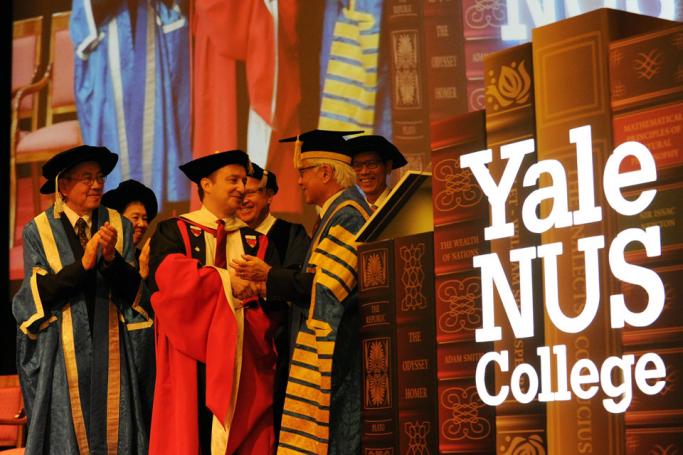Yale University has launched a probe into the cancellation of a course on democratic dissent at its Singapore campus in what one activist described as the "irony of a liberal arts college in an authoritarian state."
Yale-NUS College, a partnership with the National University of Singapore, cancelled the "Dialogue and Dissent in Singapore" programme last week, two weeks before it was scheduled to start.
A summary of the programme archived online said students would learn about democratic dissent from interactions with artists, filmmakers and journalists in the city-state.
It also included a visit to Speaker's Corner, the only outdoor area where citizens can hold demonstrations without a police permit and a screening of a film about Hong Kong democracy activist Joshua Wong, according to playwright Alfian Sa’at, who co-led the project.
Yale president Peter Salovey said in a press release Saturday that he had expressed his concern to the president of the college.
"In founding and working with our Singaporean colleagues on Yale-NUS, Yale has insisted on the values of academic freedom and open inquiry, which have been central to the college and have inspired outstanding work by faculty, students, and staff," he said.
"Any action that might threaten these values is of serious concern, and we at Yale need to gain a better understanding of this decision."
Explaining the cancellation, Yale-NUS president Tan Tai Yong told the Straits Times newspaper that the proposed itinerary did not align with learning objectives earlier approved by the curriculum committee.
He also said the proposed activities included "elements that may subject students to the risk of breaking the law, and incurring legal liabilities".
Before it opened in 2013, the college had faced criticism from Yale's faculty members due to Singapore's restrictions on protests and on student political activity.
Activist Jolovan Wham, who was scheduled to speak to students on the course, responded to the cancellation on Twitter: "The irony of a liberal arts college in an authoritarian state."
Singapore's speaker of parliament also weighed in, posting on Facebook: "Given what is happening in Hong Kong and elsewhere, do we believe that this is the way to go? Is this the liberal education that we need to get us into the future?"
Sa'at said the programme was not designed to train students to stage protests but rather to guide them in thinking about dissent and allow them to ask questions of people deemed "dissidents".
© AFP












